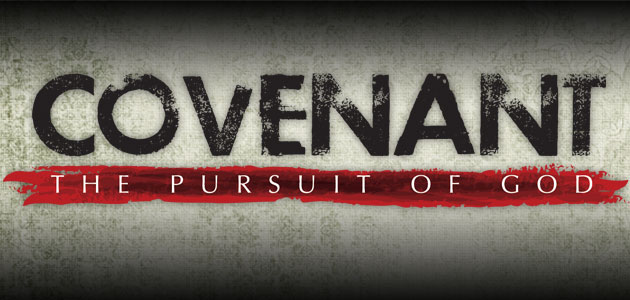Home | About Us | Directions | Bulletins | Sermons & Audio | Cross Of Christ Studies | Classes | Student and Parent Resource Page | Dangers Facing the "Non-Traditional"
Click Here for the Latest Edition of the Auburn Beacon
To Subscribe to
the Auburn Beacon please send an E-mail to:
larryrouse@aubeacon.com

Hear Buddy Payne
Speak in Auburn, Alabama
All Joy and Peace in Believing
![]()
![]()
Our God He is Alive
(Evidences from DNA)
![]()
![]()

The Final Stages of Israel's Apostasy
Adult
Bible Class in Progress - Sunday
Morning 9:30 - Auditorium Class
Planning to Visit Us?
What
to Expect
Current Class
Information
Thoughts To Ponder
When I say to the wicked, 'You shall surely die,' and you give him no warning, nor speak to warn the wicked from his wicked way, to save his life, ... but his blood I will require at your hand.
(Ezekiel 3:18)
You will need
the following viewers
to view many of the
files on this site.
![]()
Click here to
download
Adobe Acrobat Reader
![]()
Click here to
download
Microsoft PowerPoint Viewer
University church of Christ
Assembly Times
Sunday
Bible Classes (9:30)
AM Worship (10:20)
PM Worship (6:00 pm)
Wednesday
Bible
Classes
(7:00 PM)
Location
449 North Gay Street
Auburn, AL 36830
Click Here for Specific
Directions
Exegesis or Cop-Out?
by Jeffery Kingry
Is strictly exegetical discourse on the Word of God a legitimate method of teaching (An explanation or critical interpretation of a text)? Definitely. But what if there is a controversy surrounding a particular subject? Is it enough to merely quote the passages and claim "They mean what they say"? I believe the teacher, in this case, has fallen down on the job.
Scripture is not merely ink and paper-"The words that I speak unto you, they are spirit, and they are life" (Jno. 6:63). The Word of God has been given "for doctrine, for reproof, for correction, for instruction in righteousness" (2 Tim. 3:16). When applied to practical living, God's word makes a man complete and perfectly equips him to do God's will (2 Tim. 3:17). It is the responsibility of the teacher therefore, to use the Word to give people what they need (Tit. 1:5; 2 Cor. 12:19-21). Whether the word is used to rebuke sin, prick a conscience, console, or build up a soul, the teacher must give what is needed to the listener. While David stood guilty of adultery, guile, murder, and deception, the prophet Nathan did not lecture him with an exegetical monologue on the Mosaical laws concerning Marriage-Divorce-Remarriage. He told David, "thou art the man" (2 Sam. 12:7)! Anything less would have been a cop-out.
Let us look to the Master Teacher as an example (1 Jno. 2:6; Eph. 4:13, 15). He taught the people who had the law of God and knew it. They could quote large portions of the text from memory, and there was a group of men called "the scribes and Pharisees" who did little except sit about and give profound exegesis to the people from the law. One commentator has said "Philo of Alexandria declares (ca. A.D. 40) that the Jews learned to read their scriptures from childhood, and Josephus (ca. A.D. 90) says young Jews learned their laws as well as their own names" (E. J. Goodspeed, A Life of Christ, p. 34). In a day before book, chapter, and verse divisions, concordances, and reference libraries, the people knew the scriptures well. As Paul commented to young Timothy, "that from a child thou hast known the holy scriptures. . ." (2 Tim. 3:15). How and what did Jesus teach these Jews? He gave them what they needed. An example might be the sermon on the mount. Each of the beatitudes was contained in word and principle in the old law. Instead of saying "Blessed are the poor in spirit; for theirs is the kingdom of heaven" (Matt. 5:3), why did he not merely give an exegesis of Psalms 51:17 or Isa. 57:15? Instead Jesus took the law and made application of the truth: "Ye have heard it said of them of old time. . . Thou shalt not kill . . . Thou shalt not commit adultery . . . Thou shalt not forswear thyself . . . An eye for an eye, and a tooth for a tooth . . . love thy neighbor and hate thine enemy" (Matt. 5:21, 27, 33, 38, 43). Why did not Jesus merely "state something in scriptural terms fairly used according to their context" without any comment on "local and temporal circumstances and situations" as is suggested by one brother (E. Fudge, "A Few Remarks," Gospel Guardian, Vol. 25 (July 19, 1973), p. 172)? Jesus was not interested in a dry exegetical dissertation on the scriptures he quoted. He took the "local and temporal circumstances and situations" and made specific application to the people's needs. His purpose was to communicate truth in such a way as to affect living. After hearing the words of Jesus the people knew how to give, pray, serve, live, and work for God in this world (Matt. 6). When Jesus finished making application directly to the people, "the people were astonished at his doctrine: for he taught them as one having authority, and not as the scribes" (Matt. 7:28, 29). Jesus' teaching was astonishing in that he took the scriptures that they were all comfortable with, the concepts that they had cherished so long, and using language that was understandable and applicable showed their true relevance. He used local events that they were all familiar with: Sacrifice in the temple (5:23, 24), the regional court of the Sanhedrin (5:25, 26), the turn of the seasons (5:45). Jesus used local and temporal characters that all were familiar with: The publicans (5:46-48), the hypocritical philanthropist (6:2), the long faced ascetic (6:5, 7,16). Jesus used relationships that were common to all: Master-servant (6:24), Father-child (7:9-12). He made use of their bodies, the nature about them, the animals, the architecture in their lives to illustrate to them what they needed to know. The Jews knew the words in the scripture, but obviously not the applications.
This same usage of the word of God to communicate truth is demonstrated throughout the rest of the N.T. Every quotation and allusion from the O.T. as used in the New is drawn on as a substantiative authority to prove a point-to make an argument-to teach the truth. There is no expository exegesis without purpose in application in all of the N.T.
Peter quoted Joel 2:28-32 to argue the case of the Apostles, that indeed their actions were a fulfillment of the prophet, and their message was divine (Acts 2:17-21). Stephen used many passages from the old testament when he "disputed" with the scholars of his day (Acts 6:9, 10; 7). He used them to support his message of Christ's resurrection, and to show the unfolding purpose of God in history, despite the disobedience of the Jews. The conclusion of his sermon would be what some might call "ungodly, unchristian, and unbecoming vilification of persons, misrepresentations of the grossest sort, and pawning of subjective and sometimes biased opinions" (E. Fudge, Ibid, p. 173). Anyway, I am sure the Jewish council and the High Priest thought so, for the "applying specifics" that Stephen made was "Ye stiffnecked and uncircumcised in heart and ears, ye do always resist the Holy Ghost, as your fathers did, so do ye. Which of the prophets have your fathers not persecuted? And they have slain them which showed before the coming of the Just One: Of whom ye have been now the betrayers and murderers! Who have received the law by the disposition of angels and have not kept it" (Acts 7:51-53)! These were strong words and applications that cost Stephen his life. We must be careful that we do not make the same mistake Stephen did-he should have stuck to a strict exegesis of the topic in point and left the conclusions to the court.
Conclusion
There is no controversy that men of God must "devote their time to an intense study of the word of God, and to stating in preaching and print what it actually says" (E. Fudge, Ibid). But as William Barclay puts it, "There is a time when the student and the saint must come down from the study or the cell to put what they have gained in private into practice in public." Teaching that looks to some place other than the need of man to get right with God, that ignores specific sin, or overlooks error is both useless and deceptive. The purpose of the teacher is to communicate truth that it might bring forth a change on the part of the listener. Anything less is a failure to make all men reflect the Lord, both within and without (Eph. 4:11-13).
Truth Magazine - April 24, 1974
Other Articles by Jeffery Kingry
The Importunate Widow
I am Ashamed of You
Choices
Humility - True Perspective
The Only Genuine Heritage
For Past Auburn Beacons go to:
www.aubeacon.com/Bulletins.htm
Anyone can join the mailing list for the Auburn Beacon! Send your request to:
larryrouse@aubeacon.com






